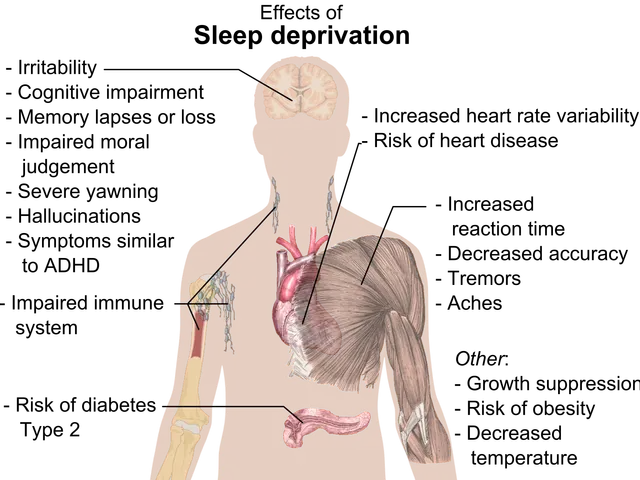Impact of a Diet Exclusively Consisting of Fruits on Physical Health
In recent years, the concept of a fruit-only diet, or fruitarianism, has gained popularity. However, a balanced approach to nutrition is crucial for maintaining optimal health.
The 80/20 Plant-Based Structure offers a viable alternative. This balanced approach involves structuring meals around 80% plant foods, including abundant fruits, while reserving 20% for concentrated nutrient sources that address fruitarianism's blind spots.
Some nutritionists advocate for a seasonal "Fruit Feast," a short, seasonal fruit emphasis, perhaps 3-7 days quarterly during peak fruit seasons. This strategy delivers detoxification benefits without creating long-term nutritional gaps.
However, a fruit-only diet over the long term can lead to serious nutrient deficiencies, muscle loss, weakened immunity, digestive issues, blood sugar imbalances, and potentially organ damage. Fruits lack essential macronutrients such as protein, fats, iron, calcium, vitamin D, and vitamin B12, all critical for muscle strength, bone health, immune function, and overall bodily maintenance.
The absence of protein in an exclusive fruit diet causes the body to break down muscle to meet amino acid needs, leading to muscle loss and a reduction in metabolic rate. The high sugar content in fruits, particularly those with high glycemic index values, can cause blood sugar spikes and crashes, contributing to mood swings, dizziness, and an increased risk of tooth decay. Excessive fiber intake from fruits can also cause digestive discomfort such as bloating and frequent bowel movements.
Experts caution that such a diet is unsustainable, monotonous, and does not provide adequate calories or nutrient diversity, leading many to abandon it or develop unhealthy eating patterns. Over time, deficiencies may result in anemia, weakened bones, and compromised immune responses. There is also a risk of electrolyte imbalance, particularly if the fruit choices are weighted heavily towards certain types like watermelon, which is low in sodium but high in potassium.
While short-term fruit diets might result in temporary weight loss, the effects are often short-lived and can be accompanied by loss of lean muscle mass and nutrient deficiencies that harm long-term health. Thus, a balanced diet including all food groups is recommended to sustain health and prevent these negative outcomes.
Strategic Nutrient Repletion is crucial for those transitioning from a fruit-only diet. Working with healthcare providers to identify and address specific deficiencies accelerates recovery.
Fruitarianism can trigger or exacerbate orthorexic behaviors, including extreme anxiety about food contamination, self-worth tied directly to dietary adherence, black-and-white thinking about food categories, and food rituals that interfere with daily functioning.
Rather than making fruits the foundation of nutrition, consider them powerful dietary enhancers. Effective integration strategies include consuming fruits primarily before noon, utilizing fruit sugars strategically for exercise energy, pairing specific fruits with meals to enhance nutrient absorption, and recognizing that more isn't necessarily better when it comes to fructose consumption.
The Mediterranean-Style Plant Emphasis offers an evidence-backed alternative. This approach emphasizes abundant plant foods while including balanced portions of other nutritional sources, with the fruit component remaining significant without dominating the plate.
For current fruitarians transitioning to a balanced diet, Gradual Protein Reincorporation is key to prevent digestive distress. The Middle Path Wisdom highlights the importance of dietary diversity, not exclusivity, for creating optimal human health. Fruits unquestionably deserve prominence within a balanced nutritional approach, but elevating any single food category to exclusivity inevitably creates blindspots that the body cannot navigate long-term.
Maintaining adequate caloric intake on a fruit-only diet requires enormous quantities of produce, creating substantial grocery expenses, especially when prioritizing organic options or exotic varieties. Additionally, fruitarians often withdraw from food-centered social activities due to the complications of a fruit-only diet, leading to social isolation.
In conclusion, while fruits are undoubtedly beneficial, a balanced diet that includes all food groups is essential for maintaining optimal health. A balanced approach ensures that the body receives the necessary nutrients for proper functioning and prevents the negative outcomes associated with a fruit-only diet.
- The 80/20 Plant-Based Structure involves structuring meals around 80% plant foods, including abundant fruits, while reserving 20% for concentrated nutrient sources, providing a viable alternative to fruitarianism's potential nutritional gaps.
- Strategic Nutrient Repletion is crucial for those transitioning from a fruit-only diet, as working with healthcare providers to identify and address specific deficiencies accelerates recovery.
- Rather than making fruits the foundation of nutrition, consider them powerful dietary enhancers. Effective integration strategies include consuming fruits primarily before noon, utilizing fruit sugars strategically for exercise energy, pairing specific fruits with meals to enhance nutrient absorption, and recognizing that more isn't necessarily better when it comes to fructose consumption.





